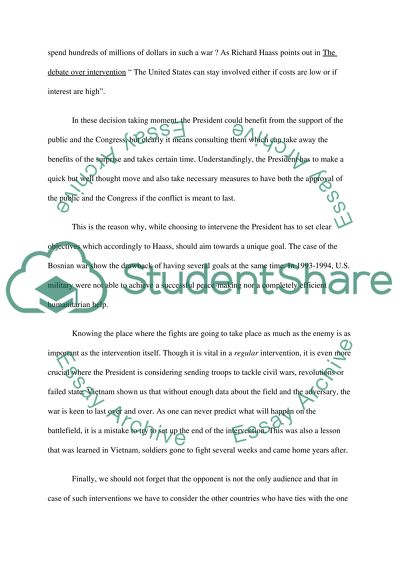American Foreign Policy The merit of the U.S. military intervention : Essay. Retrieved from https://studentshare.org/politics/1509608-american-foreign-policy-essay
American Foreign Policy The Merit of the U.S. Military Intervention : Essay. https://studentshare.org/politics/1509608-american-foreign-policy-essay.


